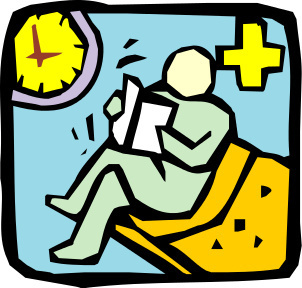
by Mel Weiss
A Near Miss
 It ended up being one of our favorite lesbian Chabad stories, but it was almost a tale of tragedy.
It ended up being one of our favorite lesbian Chabad stories, but it was almost a tale of tragedy.
Mid-January, mid-Maine—even in the era of global warming, we sometimes get snowstorms that blanket the streets and muffle every possible noise. When R called me moments before I entered a staff meeting, I expected a gripe about shoveling out the car. Instead, she was calling to tell me that our favorite octogenarian congregant was in the hospital, and it didn’t look good, and could I make some calls to find someone to cover her class?
A lot of that entire week is a blur. Once it became clear that this congregant was out of imminent danger, I remember holding an exhausted R, who’d spent the whole day in the most chaotic day-long pastoral visit of her life. I remember driving through the night snow—my very first time, shekhekhiyanu!—to the hospital, chatting with our friend for a couple of hours, trading Yiddish jokes and explaining the punchlines to her kids and grandkids. I remember some sort of cook-a-thon, stepping back an hour before Shabbat to realize I miraculous had enough food for the twenty guests we’d have over the next 25 hours.
It was that moment—planning the next hospital visit as I cleaned the bathroom, waiting for the oven to pre-heat, that I understood that maybe there’s some feminist implication to my complicity in this whole Chabad joke. For that manic weekend, I would have dared anyone to say I didn’t have equal value, didn’t play an equal role. I am woman, and I can goddamn well do anything that needs doing.
Really, though, the whole feminist click moment—maybe the first authentic one that I, born into a world that my foremothers had made immeasurably easier for me even as I imbibed their lessons with my baby food, had ever had—it basically pales before the final chapter.
R and I, hanging out in uncomfortable hospital chairs, shifted a bit as we began the second hour of our visit, and the octogenarian congregant launched into the history of the town. Now, for the true punch of the punchline to land, you have to know this: first, there is a sizable and historic Maronite Lebanese population in this town. More on that another time, but that’s what she wanted to tell us about—remember that fact. Second, although I am beloved of many—dare I say most—members of this tiny kehillah, they don’t generally know what to call me. That is to say, what I am in relation to R. “Partner” doesn’t roll easily off the tongue for them, and “girlfriend” has an entirely different meaning to the rural over-60 set. One lovely congregant, also in her 80s, refers to me as R’s companion, which makes me feel like a home-health aide. More generally, I am the rabbi’s Mel, a grammatically concise if awkward parsing of the truth.
“First came the French-Canadians,” our friend and healing congregant explained. “And after the French-Canadians,” she said, look at the two of us, this strange conglomeration of traditional and vanguard, “and then came the lesbians!”
Indeed.